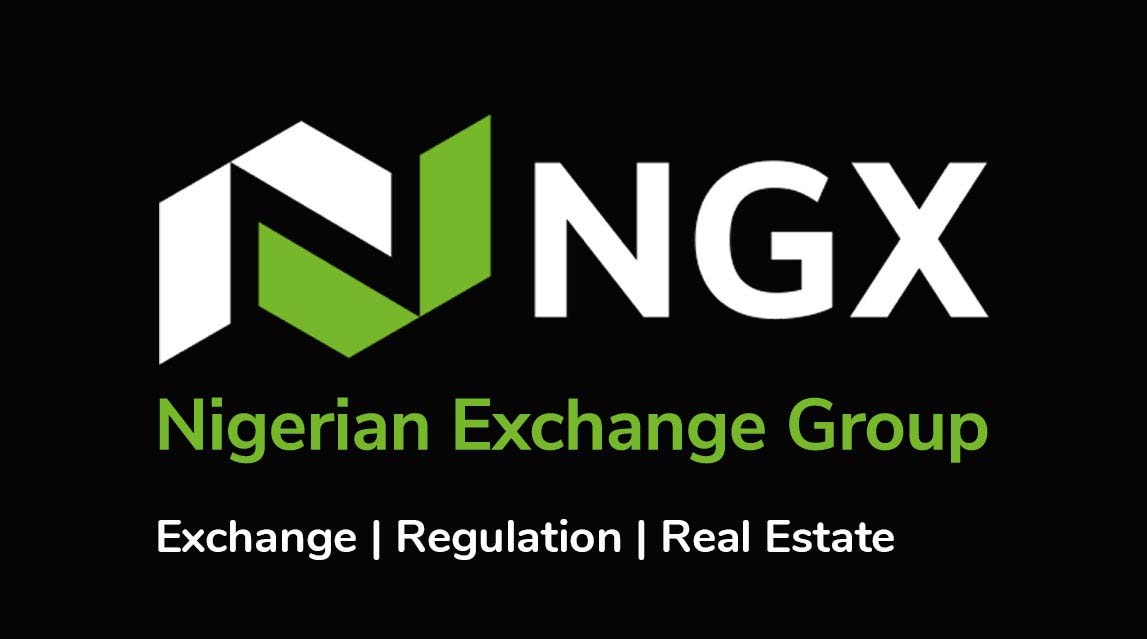Business
₦14.38 Trillion Remitted To FG Account – NEITI Report

The Nigeria Extractive Industries Transparency Initiative (NEITI) reports that federal government revenue-generating agencies transferred ₦14.38 trillion in revenue from the extractive sector to the federation account from January 2020 to December 2021.
Executive Secretary, NEITI, Orji Ogbonnaya Orji announced this in Abuja on Thursday during the release of the most recent Fiscal Allocation and Statutory Disbursement (FASD) report, which pertained to the period of 2020-2021.
The auditor general of the federation, Shaakaa Chira, was represented by Sundung James during the unveiling of the report.
Among the revenue-generating agencies mentioned in the report are the Nigerian National Petroleum Company Limited (NNPC Ltd), Nigerian Upstream Regulatory Commission (NUPRC), Federal Inland Revenue Service (FIRS), Ministry of Mines and Steel Development (MMSD), and the Nigeria Customs Service (NCS).
Mr. Orji pointed out that the breakdown revealed that mineral revenue accounted for N6.40 trillion, making up roughly 44.5% of the total remittances for the period, while other non-mineral revenue (excluding VAT) contributed N4.80 trillion, comprising approximately 33.37% of the total remittances.
During his presentation of the report’s key points, Mr. Orji emphasized that the information and data included in the latest NEITI FASD report thoroughly examined the processes that characterized all transactions within the sector.
He said “It looked at independent assessment of financial transactions in the areas of revenue receipts, payments, and how the processes weighed on the scale of transparency and accountability in the oil and gas sector during the period under review.
“Other areas that NEITI focused on in this report were projects executed deployment to capital projects and recurrent expenditure and how these aligned with the core responsibilities of the agencies, the government and citizens’ expectations.
“NEITI’s FASD Report examined total extractive industries revenue remitted to the federation account, tracked allocation and disbursement from the account to statutory recipients, utilisation and application of the funds by beneficiaries between 2020 and 2021.”
He mentioned that the audit encompassed four federal revenue-generating agencies and eleven beneficiary agencies responsible for managing extractive industries funds.
Furthermore, he noted that the report’s scope extended to nine selected states, namely Akwa-Ibom, Bayelsa, Delta, Gombe, Imo, Kano, Nasarawa, Ondo, and Rivers.
“The beneficiary agencies include: Petroleum Technology Development Fund (PTDF); Niger Delta Development Commission (NDDC), Nigerian Content Development and Monitoring Board (NCDMB), Nigeria Midstream and Downstream Petroleum Resources Agency (NMDPRA) – PEF– PPPRA.
“Others are: Tertiary Education Trust Fund (TETFund); Nigeria Sovereign Investment Authority (NSIA), Development of Natural Resources Fund (DNRF), Stabilisation Fund, Ecological Fund, Excess Crude Account (ECA)”.
The executive secretary highlighted that the report, being the fourth in the audit cycle, disclosed an approximately 14% increase in overall remittances to the federation account for the period.
The auditor general of the federation, Shaakaa Chira, mentioned that the FASD report, which serves his office’s needs, aligns with the agency’s constitutional mandate in Nigeria.
Business
Community Engagement, Sustainability Take Centre-Stage At Dangote Cement

Dangote Cement Plc is prioritizing community engagement, empowerment, and environmental stewardship to sustain its upward trajectory.
The cement manufacturing giant express belief that true business progress should be measured more by the holistic development of all stakeholders than by economic prosperity.
Plant Director, Dangote Cement Plc Obajana, Azad Nawabuddin, made the assertion during a media chat in Obajana.
He explained that the relationship between Dangote Cement and its host communities and other stakeholders transcends transactional exchanges because it is built on a foundation of trust, mutual respect, and shared aspirations.
He said, “The communities in which we operate are not just beneficiaries; they are our partners in progress.”
Reaffirming the company’s commitment to host communities, Nawabuddin, who recently moved from the Ibese plant, emphasized that the company would continue collaborating with key stakeholders in Obajana for the implementation of impactful projects.
According to him, empowerment of residents through skills development and capacity-building initiatives are crucial to Dangote Cement’s vision.
“We recognize the importance of equipping community members with the requisite skills to thrive in today’s competitive landscape,” Nawabuddin asserted.
The Dangote Cement boss opined that this would enhance employability and foster entrepreneurship among youth and women in the host communities.
With a steadfast commitment to corporate social responsibility (CSR) and sustainable development, Nawabuddin outlined initiatives to strengthen the bond between Dangote Cement and the communities.
He emphasized that the company views its host communities as partners.
“In terms of community engagement, we will hold meetings to explore avenues for supporting them, including opportunities for businesses and contracts. The communities are integral partners for us. Through dialogue with them, we aim to execute significant projects that will bring them lasting benefits,” he stated.
Nawabuddin also stressed that the importance of environmental stewardship and sustainable practices in Dangote Cement’s operations.
“We are custodians of the environment, and it is our duty to ensure that our activities leave a positive impact on the ecosystem,” he added.
Nawabuddin explained that in addition to socio-economic development is the importance of addressing security concerns in the host communities. He said through collaborative efforts with law enforcement agencies and community-based initiatives, security risks will be mitigated, and the well-being of residents will be upheld.
“We are working closely with local authorities and community leaders to enhance security measures and create a safe and conducive environment for all,” he added.
Business
PoS Operators Set To Challenge CAC In Court
In a bold move, Point of Sale (PoS) operators, led by the National President of the Association of Mobile Money and Bank Agents, are gearing up for a legal battle against the Corporate Affairs Commission (CAC).
The contentious issue revolves around the CAC’s recent directive mandating PoS operators to register with the commission.
President Fasasi Sarafadeen asserts that the directive violates existing legislation, particularly the Companies and Allied Matters Act, 2004, which “explicitly states that the commission has no jurisdiction over individuals not operating as a company.
He said, “According to section 863(1) of the Companies and Allied Matters Act, 2004, the order to enforce CAC directive on individual PoS agents operating under their name is wrong and will be challenged, as it contravenes the Companies and Allied Matters Act, Laws of the Federation of Nigeria, 2004, which explicitly states that CAC has no jurisdiction over individuals not operating as a company.
“We shall challenge it legally. The court will have to intervene in the interpretation of the quoted section of the CAMA if individuals operating as a sub-agent (likened to a bank branch) must register with CAC.
“CBN is right, no issue, the memo is clear, it only applies to non-individuals, unlike the Corporate Affairs Commission who generalised. We are in talks with the lawyer representing the association already, and a league of human rights lawyers whom we are not disclosing who they are for now.”
He explained that Point-of-Sale agents fall into two categories.
He said “CAMA only mandates registration of individuals operating as a company. There are two categories of POS agents: individuals and non-individuals. Individual agents operate under their names, such as Musa Caroline or Abubakar Audu, and are typically profiled with financial institutions under their names.
“Non-individual agents, on the other hand, operate under registered or unregistered business names, such as Wale Ventures or Johnson Enterprises. It is this second category of agents that the Corporate Affairs Commission can enforce the law on, as they are required to register their business names by the law.
“Sub agents are not carrying out as an independent company but branches of a company. For example, while commercial banks operate with bank branches across the country, Fintechs (MMO, super agents, and co) operate with a network of sub-agents. It is therefore lack of knowledge of the workings in a Fintech/agent banking industry to be tagging sub-agents as illegal.”
The head of AMMBAN stressed that the CAC’s priority should be addressing the alarming rate of business failures in Nigeria, rather than imposing regulatory obligations on individual POS agents operating under their names.
“The Corporate Affairs Commission should prioritise addressing the alarming failure rate of registered businesses in Nigeria, rather than targeting sub-agents. With over 4.9 million businesses registered, 50 per cent of which fail every five years, this should be the focus.
“In addition, the Central Bank of Nigeria’s memo specifically addressed non-individual agents, not individual sub-agents, and CAC’s threat to harass sub-agents is unwarranted and excessive.” He added
This new directive follows a series of fraud incidents involving POS terminals and the Central Bank of Nigeria’s plans to prohibit trading in cryptocurrency or any virtual currency.
According to a fraud report by the Nigeria Inter-Bank Settlement System Plc, POS terminals accounted for 26.37% of fraud incidents in 2023.
BIZTELLERS recalls that the CBN halted major fintech firms such as Kuda, Opay, PalmPay, and Moniepoint from accepting new customers.
Additionally, these companies were instructed to caution their customers against trading in cryptocurrency or any virtual currency on their platforms, with the warning of potential account blocks for those engaging in such activities.”
The CBN’s action was connected to an ongoing audit of the Know-Your-Customer process of fintechs, which have faced heightened scrutiny due to concerns about money laundering and terrorism financing.
Prior to the CBN’s directive, the Economic and Financial Crimes Commission had secured a court order to freeze a minimum of 1,146 bank accounts belonging to individuals and companies allegedly implicated in illicit foreign exchange dealings.
Business
NGX Lists N4.075bn AVA Infrastructure Fund

The Nigerian Exchange (NGX) Limited on Friday listed N4.075 billion of AVA Infrastructure Series 1 Fund on its trading platform.
This was revealed in a statement issued in Lagos, under the signauture of Head, Issuers Regulation Department, NGX, Godstime Iwenekhai.
He stated that “trading license holders are hereby notified of the listing of AVA Global Asset Managers Limited’s AVA Infrastructure Series 1 Fund of 4,075 units of N1 million each issued at par under the N200 billion issuance programme.”
Biztelers reports that AVA Infrastructure Series 1 Fund’s 4,075 units were listed on the Main Board of NGX at N1 million each as a closed-end Fund and naira-denominated unit trust scheme. AVA Capital Partners Limited is the Issuing House for the Fund, the Trustee to the Fund is STL Trustees Limited, Custodian of the Fund is United Bank of Africa Plc and the Registrar for the Fund is Cordros Registrars Limited.
Meanwhile, Securities and Exchange Commission (SEC) approved the N200 billion Infrastructure Fund of asset management firm, AVA Global Asset Managers Limited.
AVA Global Asset Managers recently launched its Series I issuance of the fund, sized at up to N200 billion on January 29, 2024 and closed on March 6, 2024, aim at bolstering infrastructural development within the country.
“The fund aims to address Nigeria’s infrastructure gaps by strategically channelling institutional capital into infrastructure projects and is designed to encourage innovative businesses in sectors such as power, telecommunications, agribusiness and supporting infrastructure, gas distribution, processing, and storage.
“The fund’s main objective is to deliver consistent and reliable income to unit holders through debt financing for infrastructure projects in Nigeria. It seeks to focus on projects or businesses that offer vital economic and social services, exhibit stable cash flows, and utilise long-lived assets,” the Company said.
The managing director of AVA Global Asset Managers, Mr. Efe Shaire stated that the fund aimed to strategically allocate private credit with a focus on impactful projects with robust and predictable future cash flows.
He emphasized the importance of private sector involvement in infrastructure financing, stressing the necessity for collaborative efforts, innovative financial products, and other strategic initiatives from private sector entities.
The listing of the fund on NGX is a clear indication of the growing interest and demand for sustainable investing in Africa and the Exchange’s commitment to the same. NGX is committed to give visibility to sustainable financial instruments listed on its platform and to encourage more listings in the sustainable finance segment as part of its sustainability drive for the capital market.





















